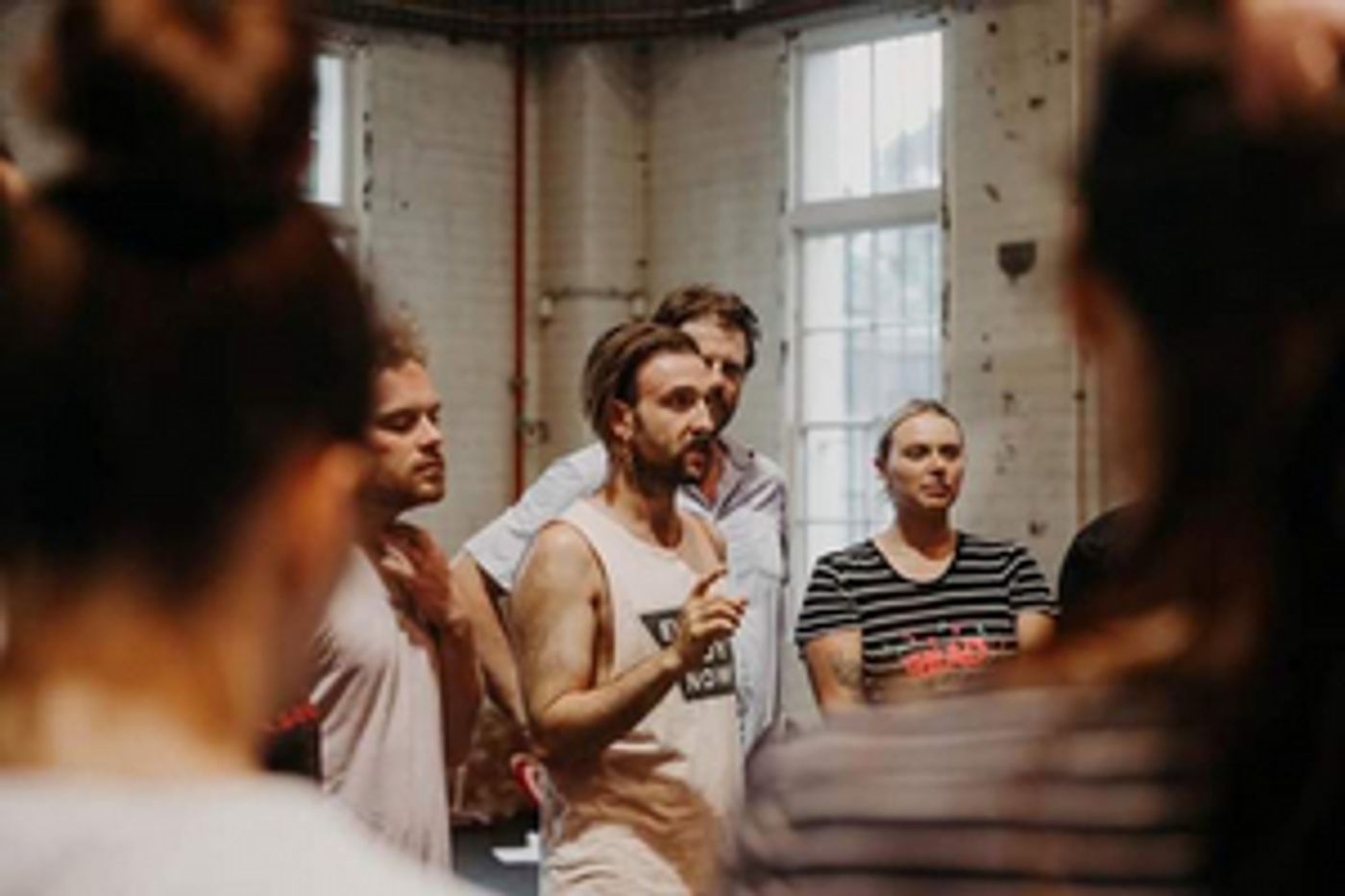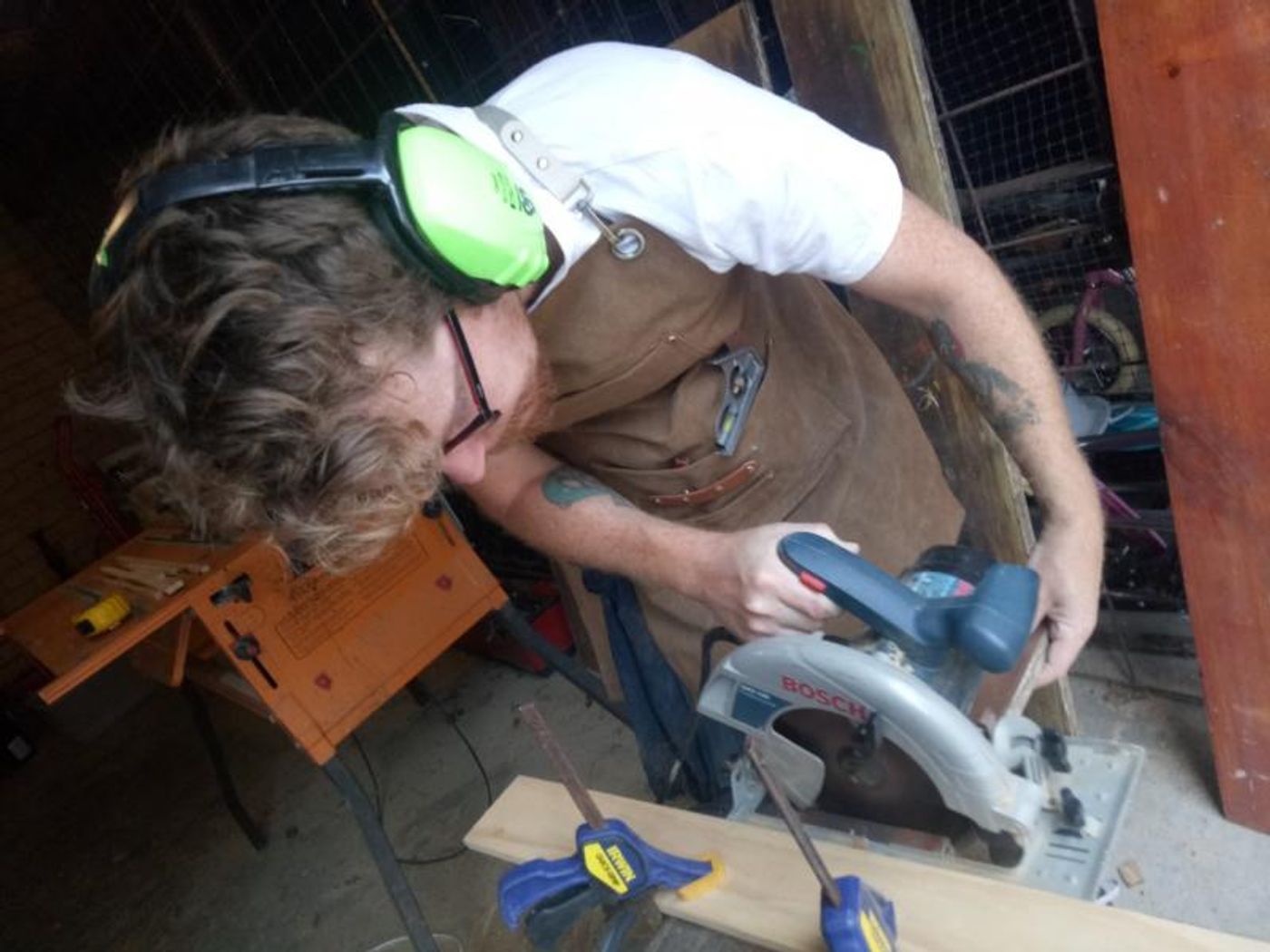Interview | Co-creators of The Time Travel Cafe, Kristian Santic and James Elliott
Interview with co-creators of the Time Travel Cafe

Next up on my Brisbane local artists segment are multidisciplinary and interdisciplinary artists, Kristian Santic and James Elliott, who've recently combined forces to create The Time Travel Cafe. Kristian is an interdisciplinary performance artist and director specialising in the forms of Theatre, Dance, and Circus with a strong curiosity for experimental and hybrid work. His collaborative nature and holistic training style yields collage-like performances that are heavily influenced by the utilization of diverse modes of expressions: live projection, community interaction/sustainability, large-scale spectacle, installation, and cinematography. Kristian's experience extends across production, creative consultancy, choreography, dramaturgy, film, and workshop facilitation. Kristian is a strong believer that the role of art is to heal and serve the community and it's collective consciousness.
James runs immersive experience design company, The Puzzlemaker, specialising in immersive entertainment, activated spaces, and experiential services. He has been a director, producer, actor, set designer, marketer, and roving performer within the Brisbane theatre scene since 2011. More than that James is a time traveller from the year 27.42.35 and has been imprisoned in the 21st century for temporal fossicking during the Bronze age. Here's what they had to say...
VIRAG: You've recently started your own theatre company called SpaceFold Technology premiering the debut show The Time Travel Cafe; an immersive parlour experience where audience are invited to engage in meaningful interactions with travellers from the pages of history. Has this been a idea that you've been brewing on for some time or did it emerge during co-vid?
JE: Firstly, I've always loved time travel as a genre and have always wanted to play with it in a meaningful way. During COVID I was listening to a lot of podcasts about immersive theatre, I was fascinated by one to one (1:1) shows where there was one audience member per performer. I became obsessed with the idea of playing a character from a different era, a time traveller, and having an intimate, meaningful interaction with a stranger. I developed the idea to include some time travel magic (secret stuff) and began asking friends who their ideal historical figure to have dinner with would be. I met with Kristian and we discussed the idea, he had it figured immediately on how to scale the experience up to include a larger audience. We were excited about the same elements of the show and now here we are, 10 weeks in.
KS: Well, initially, James came up with the idea and then we sat down to discuss it. From the start I loved it. His concept was so ingeniously simple with so much room for creative license but the kicker that got me on board was his persistence to pay the artists. We have to pay the artists. We have to pay the artists. For so much of our career we have to legitimise our existence as artists, always upselling ourselves to minimum wage. James got it. I was on board from that moment onwards. And with that we set sail on this journey and the support we are getting is profoundly encouraging. We barely get a word in with our sponsors, they just believe in it.
VIRAG: As a multidisciplinary artists, how has covid impacted your creative practice?
KS: The arts is unstable and difficult as it is, so in a way, it just went from difficult to expert level. Another day at the office (on the couch) I guess. I have picked up some tutoring work and the streets theatre sector has come back slowly, which is encouraging. I have been doing some more film work which is good too, expanding into that realm and all. The Time Travel Cafe has given me a new driving force which is inspiring. Many months of planning and creating and dreaming to go until May, which is good.
JE: In many ways it was very good for my creative practise. I was fortunate enough to continue to live and work during COVID so the impacts were mostly akin to solving a new kind of puzzle. How can I design immersive experiences remotely, or online? It enabled me to think creatively and gave me the time and space to learn new skills. It wasn't always easy, but working in the arts sector rarely is.

VIRAG: I think most people who don't work in the arts aren't able to fully comprehend what it's like to have these opportunities to create and to be paid for creating taken away from you. If you're comfortable, would you be able to elaborate on how that felt?
KS: Hmmmm, I was overseas until April taking in Europe so I tried my best to stay in the mindframe of "just an extended holiday" and repeat that ad nauseum. But waves of anxiety and purposelessness did set in and when it did, I went to the beach, or the park and just took in a bit of nature to offset the crazy times we're living in. That being said, we are in the luckiest place in the world (bar NZ) and to be able to sit with James and come up with the wackiest ideas and dream big is so heartwarming and I am so grateful for it. And I am so excited that we get to invite people on this journey with us.
JE: On the one hand it was creatively stimulating, but on the other it was dejecting. Play-at-home games skyrocketed, and audiences were still spending their money on entertainment, just not on live entertainment. They were spending it in new and different ways. My goal was to go to those places and create experiences for remote and at-home audiences. Unfortunately, pivoting to a new discipline was not viable. I had to lean on my day job to continue to support me and hope the restrictions would ease. Fortunately they did. So it was hard, defeating, and rejecting to try to pivot to a different sector, the remote sector, and discover that to do so successfully would probably take me at least 2 years of learning and experimenting to meet the quality in the market that other companies were already delivering.
VIRAG: With venues now being able to perform at 100% capacity, does it give you more hope for the arts industry bouncing back so to speak? I don't know about you, but I'm still feeling quite a bit apprehensive...
KS: I haven't held my breath. I just take it day by day because tomorrow might be cancelled. As an artist, I have had gigs, shows, whole seasons get pulled out from under me, this pandemic is no different from a work perspective. I know we will land on our feet because the Australian arts scene is so supportive and I like to think we all look out for each other.
JE: The arts needs audiences and audiences need the arts. Being fortunate enough to get work straight after the restrictions eased showed me how excited people were to go back out to bars and shows. We were missing the work as much as people were missing the entertainment. I never had a doubt that we would return to in person. It goes against our programming, our values, our biology, to connect with our fellow humans.
VIRAG: And lastly, how can we support your new company and your creative practices that exist outside of that? Is there anything that we need to look out for?
KS: Follow the facebook page, share it, like it, buy a ticket to the show, tell your mates about it, hell, tell your Nonna about it! She'll love it.
JE: Head to the www.thetimetravelcafe.com and sign up to our email list. Feel free to contact us we'd love to hear from anyone who wants to be involved. Tell your friends. Timetravelcafe.com
Image Credits:
Photo One: Kristian Santic, Movement Director on Brisbane Immersive's Midsummer Carnival, photo by Shalyn Knight
Photo Two: James Elliott
Videos

